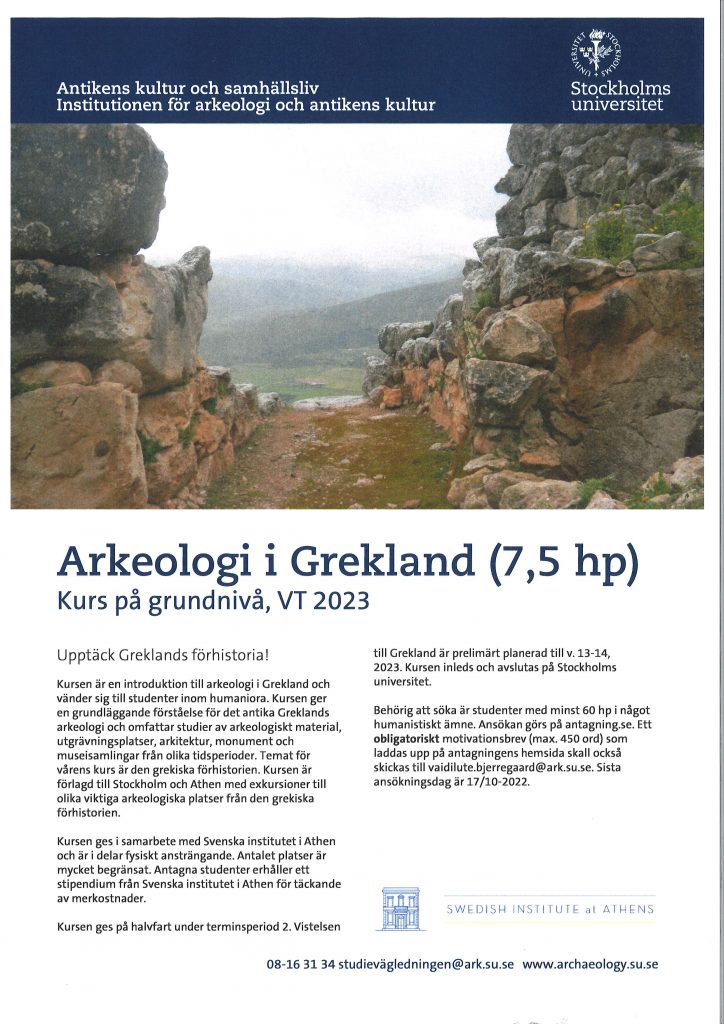Jag hoppas att ni alla haft en fin sommar och har fått en lika fin början på terminen! De flesta av våra kurser började idag och jag har redan träffat er, men ifall det skulle vara så att ni missat studentföreningen Knuts program för den här veckan tänkte jag lägga upp det här också.
Det börjar redan idag, måndag, med en skattjakt genom stan och sen lite häng i Stadsparken. Börja med att möta upp med dem i knutrummet A017 15.00-16.00 och skattjakten avgår därifrån. Vill man ha sällskap direkt till parken kommer några av Knuts medlemmar att gå från knutrummet kl 16 dit.
På torsdag kommer Knut till institutionens kick-off kl 16 i C212 och hjälper till med socialiserandet och minglandet. Efter det klingar av tar de sen med sig alla intresserade till vidare häng med ett quiz om arkeologiska och lundensiska saker i B339. Där kommer det också att serveras dryck och snacks.
Veckan avslutas i stor stil på fredag med en brännbollsmatch i Stadsparken, samling vid Vita Scenen. Efter det och lite andra spel blir det en pubrunda i Lund.
Kom ihåg att du inte behöver dricka alkohol för att delta eller vara välkommen!
//
I hope you all have had a good summer and are off to a good start of the semester! Most of our courses started today and I’ve met a lot of you already – but if any of you failed to get the programme for all the student society Knut’s events I wanted to make sure you found the information!
They start today (Monday) with a treasure hunt through the city and some easy socializing in Stadsparken. If you haven’t any idea about how to get there some will gather in room A017 until four o’clock before they go together to the park.
On Thursday we have a kick-off with the Department in C212 and Knut will be there as our social butterflies, helping out and being generally nice. It’s a good time to get to know the staff, teachers, other students and Knut. After that Knut bring everybody over to B339 to continue hanging out with a quiz about archaeology and Lund.
And on Friday they host a game of brännboll (a Swedish version of baseball that is part of going to school in Sweden). There will be other games and some drinks together and then a planned pub crawl for any interested.
There is no preassure to drink alcohol to participate! There will be other alternatives as well.


Kommentarer